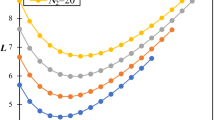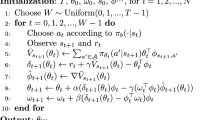Abstract
We consider a matching system with random arrivals of items of different types. The items wait in queues—one per item type—until they are “matched.” Each matching requires certain quantities of items of different types; after a matching is activated, the associated items leave the system. There exists a finite set of possible matchings, each producing a certain amount of “reward.” This model has a broad range of important applications, including assemble-to-order systems, Internet advertising, and matching web portals. We propose an optimal matching scheme in the sense that it asymptotically maximizes the long-term average matching reward, while keeping the queues stable. The scheme makes matching decisions in a specially constructed virtual system, which in turn controls decisions in the physical system. The key feature of the virtual system is that, unlike the physical one, it allows the queues to become negative. The matchings in the virtual system are controlled by an extended version of the greedy primal–dual (GPD) algorithm, which we prove to be asymptotically optimal—this in turn implies the asymptotic optimality of the entire scheme. The scheme is real time; at any time, it uses simple rules based on the current state of the virtual and physical queues. It is very robust in that it does not require any knowledge of the item arrival rates and automatically adapts to changing rates. The extended GPD algorithm and its asymptotic optimality apply to a quite general queueing network framework, not limited to matching problems, and therefore are of independent interest.








Similar content being viewed by others
References
Adan, I., Bušić, A., Mairesse, J., Weiss, G.: Reversibility and further properties of FCFS infinite bipartite matching. Math. Oper. Res. 43, 598–621 (2017)
Adan, I., Weiss, G.: Exact FCFS matching rates for two infinite multitype sequences. Oper. Res. 60(2), 475–489 (2012)
Büke, B., Chen, H.: Stabilizing policies for probabilistic matching systems. Queueing Syst. 80(1–2), 35–69 (2015)
Bušić, A., Gupta, V., Mairesse, J.: Stability of the bipartite matching model. Adv. Appl. Probab. 45(2), 351–378 (2013)
Bušić, A., Meyn, S.: Optimization of dynamic matching models. (2014). arXiv preprint arXiv:1411.1044
Caldentey, R., Kaplan, E.H., Weiss, G.: FCFS infinite bipartite matching of servers and customers. Adv. Appl. Probab. 41(3), 695–730 (2009)
Gurvich, I., Ward, A.: On the dynamic control of matching queues. Stoch. Syst. 4(2), 479–523 (2014)
Kashyap, B.: The double-ended queue with bulk service and limited waiting space. Oper. Res. 14(5), 822–834 (1966)
Lovász, L., Plummer, M.D.: Matching Theory, vol. 367. American Mathematical Society, Providence (2009)
Mairesse, J., Moyal, P.: Stability of the stochastic matching model. J. Appl. Probab. 53(4), 1064–1077 (2016)
Mehta, A.: Online matching and ad allocation. Theor. Comput. Sci. 8(4), 265–368 (2012)
Plambeck, E.L., Ward, A.R.: Optimal control of a high-volume assemble-to-order system with maximum leadtime quotation and expediting. Queueing Syst. 60(1), 1–69 (2008)
Stolyar, A.L.: Maximizing queueing network utility subject to stability: greedy primal-dual algorithm. Queueing Syst. 50(4), 401–457 (2005)
Stolyar, A.L.: Greedy primal-dual algorithm for dynamic resource allocation in complex networks. Queueing Syst. 54(3), 203–220 (2006)
Stolyar, A.L., Tezcan, T.: Control of systems with flexible multi-server pools: a shadow routing approach. Queueing Syst. 66(1), 1–51 (2010)
Author information
Authors and Affiliations
Corresponding author
Rights and permissions
About this article
Cite this article
Nazari, M., Stolyar, A.L. Reward maximization in general dynamic matching systems. Queueing Syst 91, 143–170 (2019). https://doi.org/10.1007/s11134-018-9593-y
Received:
Revised:
Published:
Issue Date:
DOI: https://doi.org/10.1007/s11134-018-9593-y




